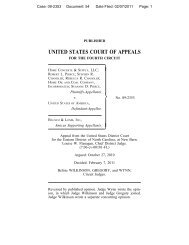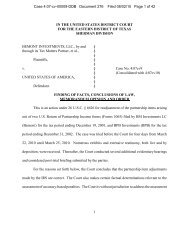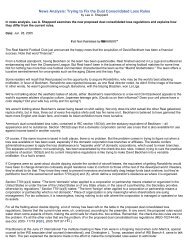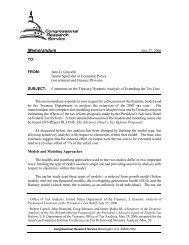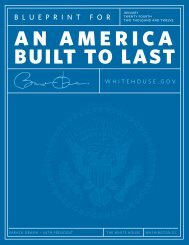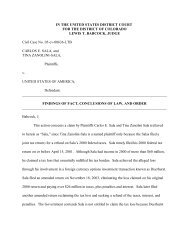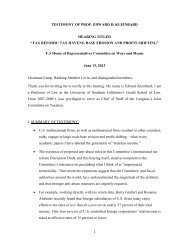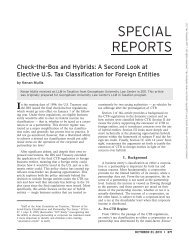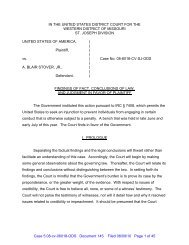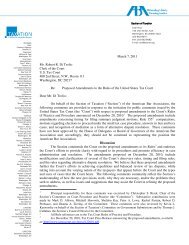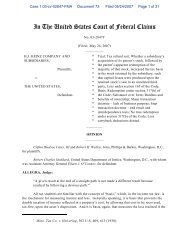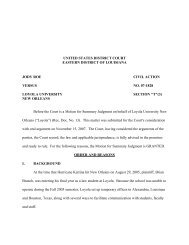United States' Motion to Exclude Expert Testimony of Plaintiffs'
United States' Motion to Exclude Expert Testimony of Plaintiffs'
United States' Motion to Exclude Expert Testimony of Plaintiffs'
- No tags were found...
You also want an ePaper? Increase the reach of your titles
YUMPU automatically turns print PDFs into web optimized ePapers that Google loves.
taxpayer wil prevail on the merits <strong>of</strong> each issue. The Opinion concludes for each issuethat the taxpayers were more likely than not <strong>to</strong> prevaiL. Therefore, the Opinion meetsthis requirement.(iv) Overall Conclusion. The advice must provide the practitioner's overallconclusion as <strong>to</strong> the likelihood that the Federal tax treatment <strong>of</strong> the transaction is theproper treatment and the reasons for that conclusion. Matt Coscia, <strong>of</strong> Coscia Greilchprovided this conclusion <strong>to</strong> the taxpayers. Therefore, the advice given by CosciaGreilch meets this requirement.2. Reasonable Reliance on the OpinionBecause <strong>of</strong> the overwhelming complexity <strong>of</strong> our tax system, we must allowtaxpayers <strong>to</strong> rely on experts - it simply makes no sense <strong>to</strong> require each taxpayer <strong>to</strong>master the technical intricacies <strong>of</strong> arcane parts <strong>of</strong> the tax law. Implicit in the idea <strong>of</strong>reasonable reliance, however, is that the taxpayer not have reasons <strong>to</strong> suspect that theadvice is not proper. For this reason, there are now significant restrictions in theactivities <strong>of</strong> tax shelter promoters and on the ability <strong>to</strong> rely on marketed transactionsand opinions.Many Notice 2000-44 transactions were marketed by promoters and, therefore,regardless <strong>of</strong> the technical merits <strong>of</strong> the opinions, there is an argument that taxpayersshould have been sufficiently on notice that reliance on such opinions was notreasonable. Although I take no view on whether the transaction here was a Notice2000-44 transaction, a key fact about the Opinion was that it came from a trusted taxadvisor rather than someone marketing or sellng the transaction. There was no"opinion shopping". The taxpayers simply received advice in the ordinary course <strong>of</strong> abusiness transaction. There was, therefore, little reason for the taxpayers <strong>to</strong> try <strong>to</strong>second guess their advisor, and every reason <strong>to</strong> rely on the advice.The transaction was also part <strong>of</strong> an ordinary business transaction, the plannedtender <strong>of</strong>fer for Solution 6. It was not a separate transaction with no connection <strong>to</strong>ordinary business operations, as most Notice 2000-44 transactions were. Although taxbenefits were a significant feature <strong>of</strong> the transaction, most ordinary businesstransactions include significant tax structuring, and smart taxpayers always look forlegitimate ways <strong>to</strong> reduce their tax liabilties.14



